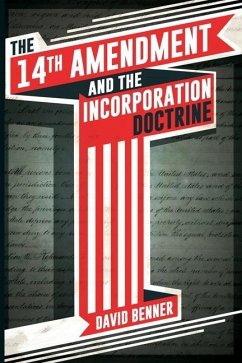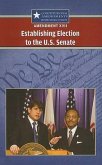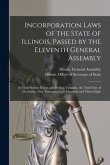Americans often describe their rights in terms of numbers derived from amendments in the federal Bill of Rights, an unambiguous set of limitations on government. Despite this tendency, most do not realize that such amendments were never designed to inhibit local authorities. Nevertheless, during the Progressive Era the federal courts began to claim that the 14th Amendment had "incorporated" federal Bill of Rights restrictions against the state governments. Ever since, this outlook has provided the basis upon which the federal judiciary overturns state laws deemed to be unsavory. As David Benner reveals in The 14th Amendment and the Incorporation Doctrine, no such function was originally envisioned by the amendment. Demonstrating the subject's far-reaching ramifications, he illustrates how the embrace of incorporation has severely eroded the Constitution's original intent. Without constitutional sanction, this fallacious doctrine has given the federal courts an excuse to meddle with the internal affairs of the states. Virtually ignored in modern legal studies, the incorporation doctrine is now considered a settled matter of American jurisprudence. Despite the lack of attention to the topic, Benner argues that there is no legal precept that has done more to transform the power of the federal judiciary into a superlative force.
Hinweis: Dieser Artikel kann nur an eine deutsche Lieferadresse ausgeliefert werden.
Hinweis: Dieser Artikel kann nur an eine deutsche Lieferadresse ausgeliefert werden.




![Index to Acts of Incorporation of the City of Quebec [microform] Index to Acts of Incorporation of the City of Quebec [microform]](https://bilder.buecher.de/produkte/66/66137/66137777m.jpg)
![General Rules and Orders of the Surrogate Courts, Upper Canada [microform]: as Directed by the Judges Appointed Under the 14th Sec., Surrogate Courts General Rules and Orders of the Surrogate Courts, Upper Canada [microform]: as Directed by the Judges Appointed Under the 14th Sec., Surrogate Courts](https://bilder.buecher.de/produkte/66/66192/66192959m.jpg)

![Act of Incorporation of the City of Quebec [microform]: Compilation of the Several Statutes Concerning That Act and the Recorder's Court of the City o Act of Incorporation of the City of Quebec [microform]: Compilation of the Several Statutes Concerning That Act and the Recorder's Court of the City o](https://bilder.buecher.de/produkte/66/66113/66113071m.jpg)
![The Members of the Municipal Council and Civic Officials of the City of Toronto [microform]: From the Date of the Incorporation of the City in 1834 to The Members of the Municipal Council and Civic Officials of the City of Toronto [microform]: From the Date of the Incorporation of the City in 1834 to](https://bilder.buecher.de/produkte/65/65572/65572558m.jpg)